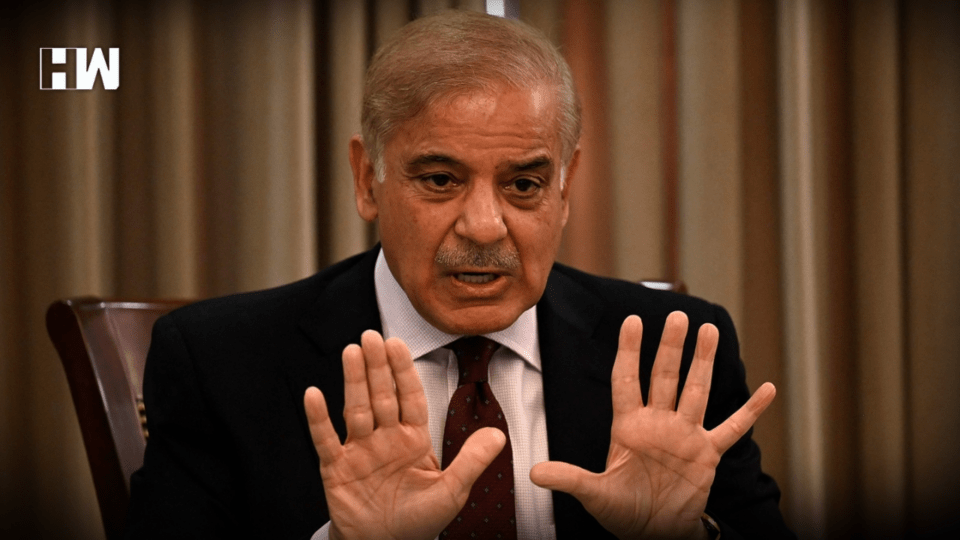Pakistan Prime Minister Shehbaz Sharif held bilateral discussions with UAE President Sheikh Mohamed bin Zayed Al Nahyan during a recent visit to the UAE there was no mention of Kashmir in the joint statement between the United Arab Emirates and Pakistan
Islamabad [Pakistan]: Pakistan Prime Minister Shehbaz Sharif held bilateral discussions with UAE President Sheikh Mohamed bin Zayed Al Nahyan during a recent visit to the UAE, exchanging views on regional, political and security matters. However, there was no mention of Kashmir in the joint statement between the United Arab Emirates and Pakistan.
According to the joint statement, the two sides discussed initiatives to enhance cooperation in political, defence, economic, commercial and cultural areas, developing joint ventures, and strengthening collaboration in the human resource sector. Sharif also thanked UAE President Al Nahyan for the humanitarian aid the country offered to Pakistan to tackle floods. However, Pakistan refrained from raising any issue related to Kashmir during the talks.
“With a view to developing tangible and meaningful bilateral cooperation in key areas, the two sides agreed to intensify consultation and coordination geared to strengthening strategic partnership and cooperation, particularly in the field of information and communication technologies and work together for bridging the digital divide,” the joint statement read, according to the Ministry of Foreign Affairs of Pakistan.
Pakistan PM Shehbaz Sharif conducted an official visit to the United Arab Emirates at the invitation of UAE President Sheikh Mohamed bin Zayed Al Nahyan on January 12-13. This was Sharif’s third visit after assuming office.
Also, Read: US, Japan To Strengthen Alliance Against China
“The two sides signed a Memoranda of Understanding in the field of combating human trafficking, information exchange, and between the diplomatic academies of both countries,” the joint statement said.
Recently, Pakistan Foreign Minister Bilawal Bhutto Zardari raked up the issue of Kashmir during a meeting convened to debate the New Orientation for Reformed Multilateralism (NORM) under India’s December presidency of UNSC.
Pakistan’s foreign minister said the UN Security Council (UNSC) is primarily responsible for maintaining international peace and security.
“Multilateral solutions under the umbrella of the security council offer the most effective approach to promoting peace and resolving conflicts. Parties to a dispute can not advocate multilateral process one day, multilateral reforms one day and insist on bilateral avenues the next and ultimately impose unilateral actions,” he said in a reference to Jammu and Kashmir without naming them.
Bhutto said Pakistan firmly believes that major security problems, including those in its region, can be effectively and peacefully resolved through the active involvement of the Security Council.
“Multilateralism should be based on universal and consistent adherence to the UN charter,” he added.
Amidst calls for India’s inclusion in Security Council, Bhutto said, “Adding new permanent members to UNSC will numerically reduce the opportunities for the vast majority of the UN member states to be present on the Security Council. We must adhere to sovereign equality of all, not superiority of some.”
Since New Delhi repealed Article 370 of the Constitution on August 5, 2019, to withdraw Jammu and Kashmir’s special status, tensions between India and Pakistan have risen. This was not the first time Pakistan used the UN, a multilateral forum, to rake up Kashmir.
Bhutto’s statement at the UN over Kashmir did not receive any support from the G20 countries and was countered strongly by External Affairs Minister S Jaishankar.
Jaishankar said the credibility of the UN depends on its effective response to the “key challenges of our time be it pandemic, climate change, conflicts or terrorism”.
He continued, “hile searching for solutions, our discourse must never accept the normalisation of such threats. The question of justifying what the world regards as unacceptable should not even arise.”
“That certainly applies to state sponsorship of cross-border terrorism. Nor can hosting Osama Bin Laden and attacking a neighbouring Parliament serve as credentials to sermonize before this council,” he said in an apparent reference to Pakistan.
(Except for the headline, this story has not been edited by HW News staff and is published from a syndicated feed.)
As an independent media platform, we do not take advertisements from governments and corporate houses. It is you, our readers, who have supported us on our journey to do honest and unbiased journalism. Please contribute, so that we can continue to do the same in future.

